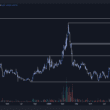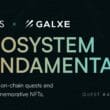Sushi, kripto para dünyasının en büyük ve en güvenilir merkeziyetsiz borsalarından biri olarak tanınırken, şimdi ise Aptos Blockchain’ine genişleyerek yeni bir dönemi resmen başlatıyor. Bu geçiş, Sushi’nin Ethereum Virtual Machine (EVM) ile uyumlu olmayan ilk blockchain ile entegrasyonu olarak görülüyor.
Sushi’nin halihazırda faaliyet gösterdiği başlıca EVM zincirleri arasında özellikle Ethereum, Fantom, Polygon, Arbitrum ve BNB Chain yer alıyor.
Aptos, eski Meta çalışanları tarafından yaratılan ve Andreessen Horowitz (a16z) tarafından finanse edilen Layer-1 blockchain platformudur. Sushi’nin bu yeni ortaklığı, platformun zincirler arası ve çoklu zincir hedeflerini ilerletme konusunda kritik bir role sahip.
Önde gelen çok zincirli DEX olan Sushi, yakında EVM olmayan ilk zincir Aptos’u da kapsayacak.
Daha fazlasını öğrenin ?”
Aptos ve Sushi: DeFi’nin Geleceği için Stratejik Bir Ortaklık
Sushi, Ethereum’da 267 milyon dolar gibi ciddi bir kilitli toplam değere (TVL) sahip. Öte yandan, Aptos’un mevcut TVL’i 45 milyon dolar civarında.
Sushi’nin Aptos’a taşınması, yeni sermaye girişlerinin önünü açabilir ve Aptos’un Solana, Mixin ve Osmosis gibi EVM dışı platformlara ciddi bir rakip olmasını sağlayabilir. Sushi’nin bu genişlemesi, mevcut EVM uyumlu zincirlerle olan entegrasyonlarının ötesine geçerek DeFi ekosisteminde daha geniş bir çeşitlilik ve esneklik sunmayı amaçlıyor.

























